Art World
The New Gigantic Pop-Up Version of the Grand Palais, Which Will Host Paris’s Major Arts Events Until 2024, Is an Absolute Engineering Marvel
The temporary structure nearby the Eiffel Tower opens to the public on Saturday.
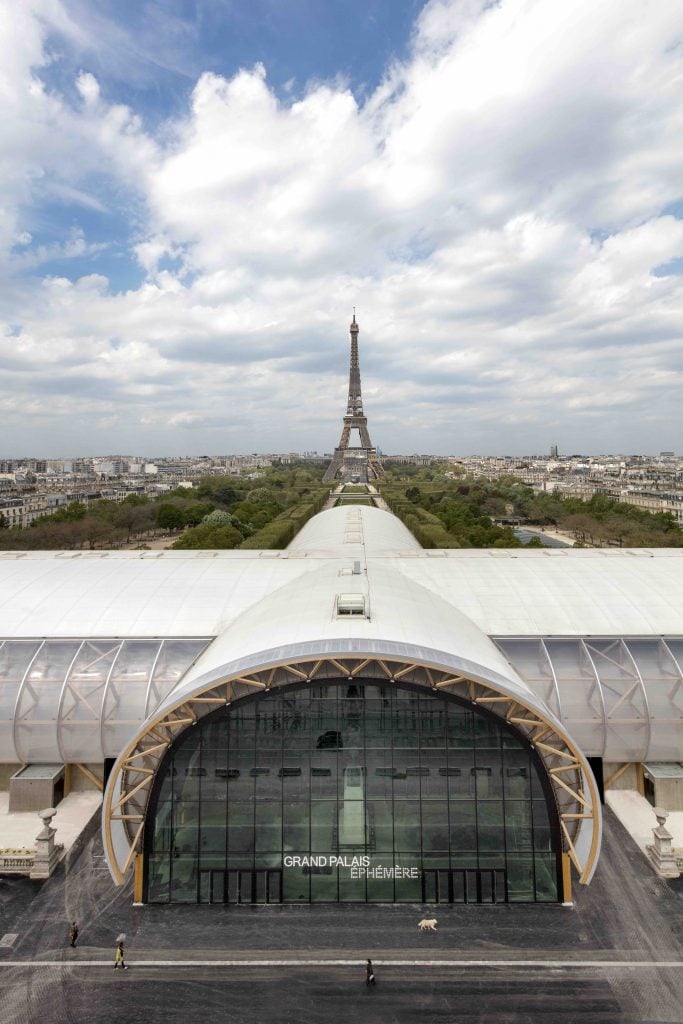
The temporary structure nearby the Eiffel Tower opens to the public on Saturday.

Anna Sansom

The Grand Palais Éphémère, the €40 million ($46.8 million) temporary building that will host the Fiac and Paris Photo art fairs in Paris while the Grand Palais undergoes renovation, is opening on Saturday on the Champ-de-Mars overlooking the Eiffel Tower.
Translating as the “Ephemeral Grand Palais,” the multi-usage, modular space will host events ranging from a solo exhibition of Anselm Kiefer, running from December 2021 to January 2022, to Chanel fashion shows, Hermès show jumping, and judo and wrestling competitions during the Paris Olympic Games in 2024.
Boasting a dramatically curved roof, the 10,000 square-meter structure is the vision of the French architect Jean-Michel Wilmotte, and was assembled over three months during the pandemic.
Overseen by the Réunion des musées nationaux-Grand Palais (Rmn-GP) and Paris 2024, its framework made with wood from a sustainably managed forest supports a central nave with 44 black arches.
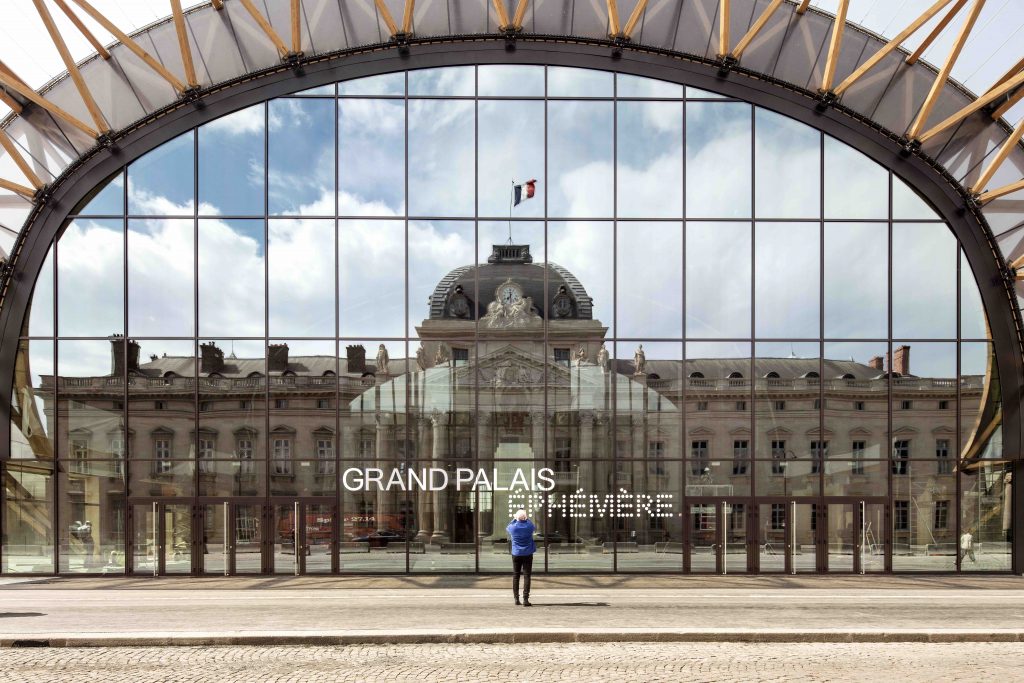
Le Grand Palais Éphémère, Champs de mars, Paris. Wilmotte & Associés Architectes. Photo ©Patrick Tourneboeuf/RMN_GP/Tendance Floue.
Designed with reusability in mind, its prefabricated elements can be reassembled in other configurations elsewhere after it is dismantled in September 2024.
“What’s interesting today is to have places that can receive and adapt to very different events,” the architect Wilmotte told Artnet News.
The typology of the multi-disciplinary space is in a similar spirit to that of the Shed by Diller Scofidio + Renfro in New York, the Factory by Rem Koolhaas in Manchester, and the Museum of 20th Century by Herzog and de Meuron in Berlin.
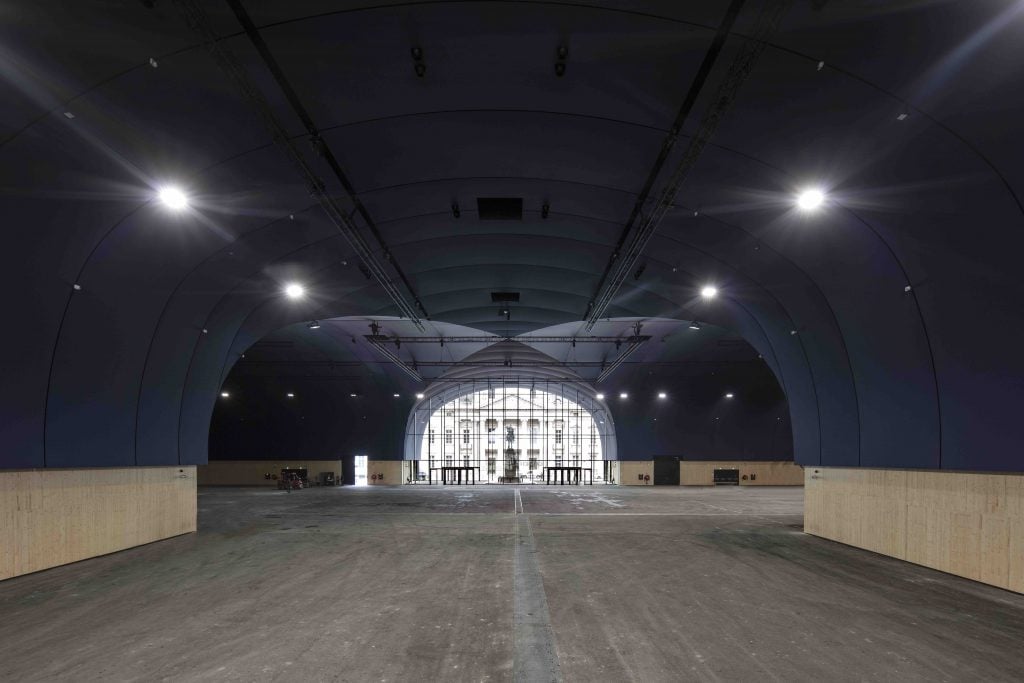
Le Grand Palais Éphémère, Champs de mars, Paris. Wilmotte & Associés Architectes. Photo ©Patrick Tourneboeuf/RMN_GP/Paris 2024/Tendance Floue.
The venue, which also has an upper-level viewing platform, is being inaugurated with the dance production, Happening Tempête, by French choreographer Boris Charmatz. Then on June 19 and 20, it will stage an augmented reality festival, Palais Augmenté, featuring five artists—Mélanie Courtinat, Lauren Moffatt, Mélodie Mousset, Manuel Rossner and Theo Triantafyllidis—whose works will be visible on visitors’ smartphones.
For the Fiac and Paris Photo, a “lighter structure” called Galerie Eiffel will be erected on the lawn of the Champs-de-Mars next to the Grand Palais Éphémère to create extra space.
“There’ll be a passage between the two [structures] and the tent will enable the surface to be increased so that there can be more stands,” Emmanuel Marcovitch, Rmn-GP’s chief executive officer, said. He added that the “extension” will be 4,000 square-meters this year and 8,000 square-meters from 2022 onwards.
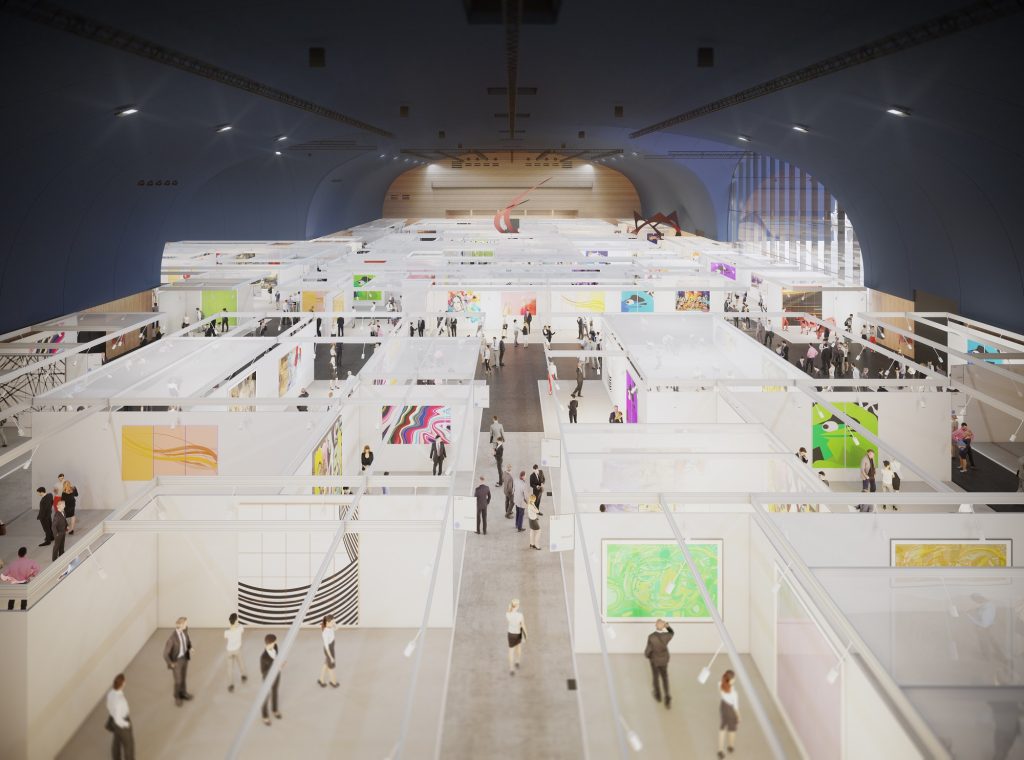
Rendering ©Wilmotte & Associés Architectes.
Jennifer Flay, director of Fiac, is impressed with the new venue: “The Grand Palais Éphémère responds to today’s environmental concerns, the principles of anti-waste and the circular flow of goods and materials, which is central to the way we must rethink the world. Its 21st-century utopian conception is inspiring and forward-thinking [while] its aesthetics and position on the Plateau Joffre of the Champ de Mars recall not only the Grand Palais, but echo a pavilion built for the 1900 World Fair which was not preserved.”
Meanwhile, Florence Bourgeois, director of Paris Photo, considers the project within the wider context of the revitalized Parisian art scene. “Alongside the new institutions and galleries that have settled in the city, the Grand Palais Éphémère is part of this new dynamic and investment in the arts,” Bourgeois opined.
Kiefer’s solo exhibition, “Pour Paul Celan,” will take place after the two fairs. On show will be new paintings made by the German artist during the pandemic that reflect upon Celan’s poetry, European history, and its wars.
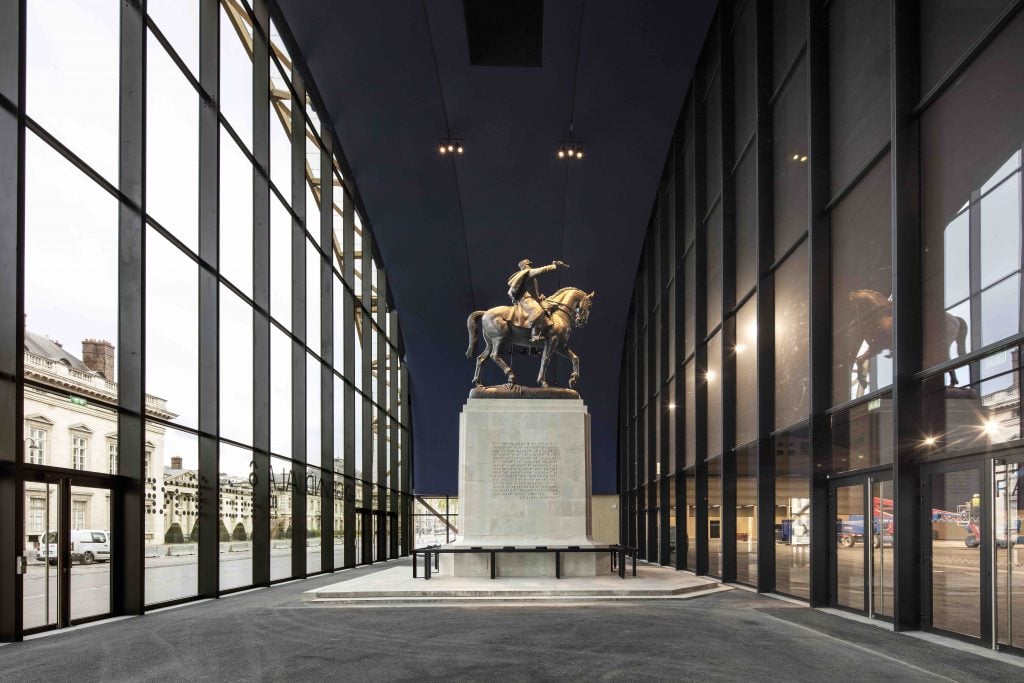
Le Grand Palais Éphémère, Champs de mars, Paris. Wilmotte & Associés Architectes. Photo ©Patrick Tourneboeuf/RMN_GP/Paris 2024/Tendance Floue.
The choice of Kiefer recalls how the 76-year-old artist was commissioned to make the first Monumenta exhibition in the Grand Palais in 2007 and to make permanent works for the Panthéon that were installed last year.
“As it was Anselm Kiefer who initiated Monumenta and made an installation at the Panthéon, we thought this could make an interesting triptych,” Chris Dercon, president of the Rmn–GP, said. Kiefer’s exhibition will see him “working with and against the building and intervening as if it were an artist’s atelier.”
The decision to offer an exhibition to Kiefer, who has a studio in Barjac, the south of France, was also politically motivated. “France will hold the presidency of the European Union from January 2022 [for six months] and if one had to think of a French-German artist, because Kiefer now has a French passport, and who addresses politics, history and conflicts, one had to think of him,” Dercon added.